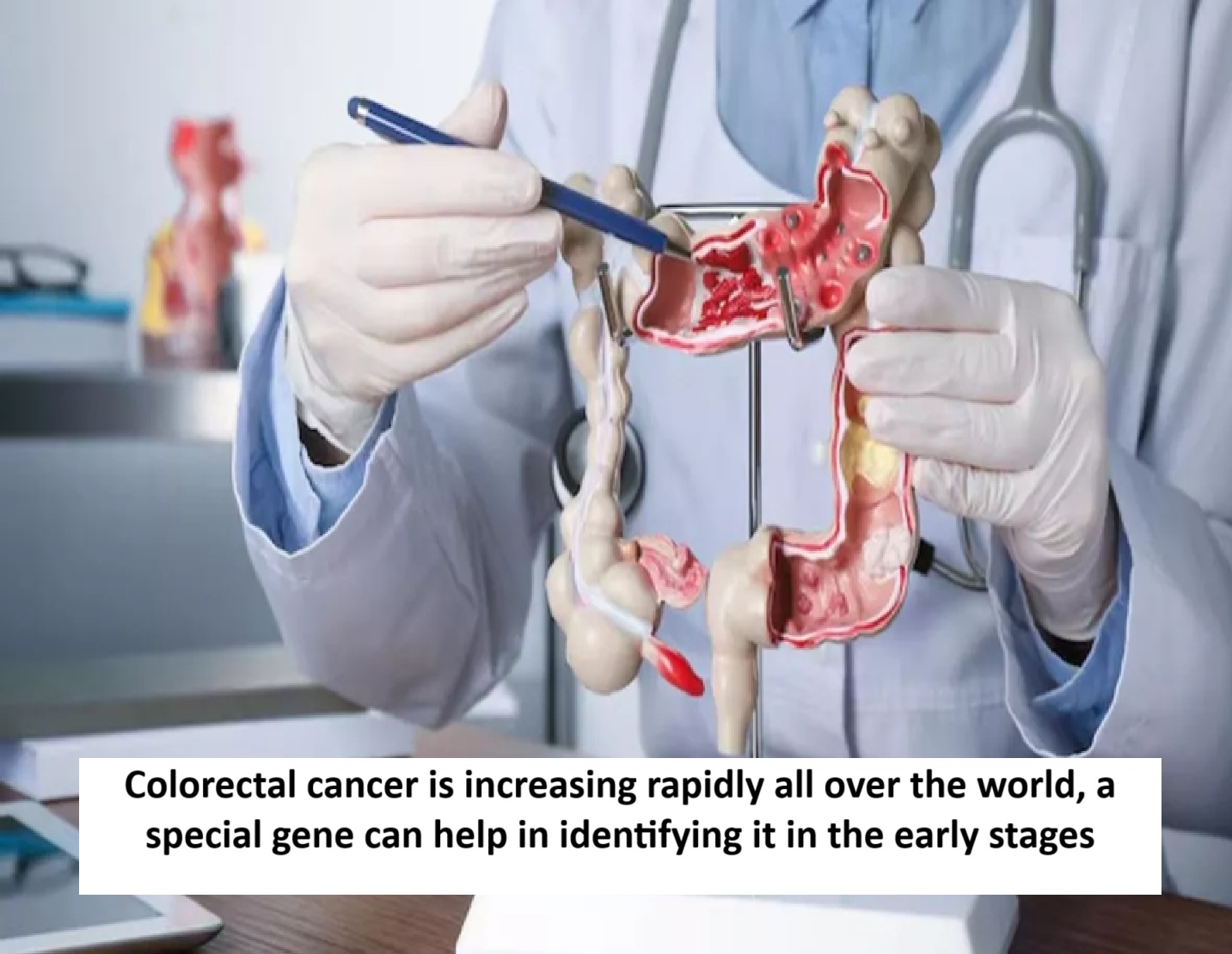
News Topical, Digital Desk : Colorectal cancer is one of the fastest growing cancers globally and its early detection remains a big challenge. Now researchers at Motilal Nehru National Institute of Technology (MNNIT) have discovered an important gene that helps in early detection of colorectal cancer. This research conducted in the Department of Biotechnology has highlighted the role of a special gene called RSPO-2, which can work as a biomarker i.e. identification indicator in the early stages of this fatal disease.
Under the guidance of Professor Sameer Srivastava, researcher Ankit Srivastava has been working on colon cancer since 2020. According to him, several tests and procedures are currently used to detect colon cancer, including stool test, colonoscopy, biopsy and imaging tests etc.
This gene-based diagnostic technique will detect the presence of cancer at an early stage, thereby increasing the life expectancy rate. Prof. Sameer explains that the RSPO-2 gene is usually associated with cell growth and control, but in patients with colorectal cancer, this gene has been found to be in a 'hypermethylated' state. That is, it goes into a closed state and loses its normal activity.
This change becomes visible at the very beginning of cancer, which makes it possible to identify it early. This research is in the process of being published in the international journal Clinical Colorectal Cancer. A research paper to this effect has been shared in international seminars held at BHU and various institutions.
Secrets revealed through technical tools
The researchers used state-of-the-art online bioinformatic tools and cancer cell lines to investigate this gene. When RSPO2 was artificially reactivated in the laboratory, it was found that the growth rate of cancer cells decreased and their ability to heal wounds also slowed down. This means that this gene acts as a 'brake' in the body that stops cancer. Prof. Sameer Srivastava says that due to lack of activity of RSPO2, cancer cells start spreading rapidly, whereas its full presence can control them. In this sense, this gene can not only be helpful in identifying cancer but can also be used in treatment strategies in future.
Unwanted growth of cells begins from the part of the large intestine
Colon cancer is sometimes called colorectal cancer. The term is a combination of colon cancer and rectal cancer, which starts in the rectum. Colon cancer is primarily the growth of cells that start in a part of the large intestine called the colon. The colon is the first and longest part of the large intestine. The large intestine is the last part of the digestive system.
The digestive system breaks down food for the body to use. It usually starts as small clusters of cells called polyps that form inside the colon. Polyps usually don't become cancerous but can turn into colon cancer over time. Polyps often don't cause symptoms. For this reason, doctors recommend regular screening tests to check for polyps in the colon.
Read More: Never store these food items in steel utensils, as they can cause food poisoning.
--Advertisement--

 Share
Share



